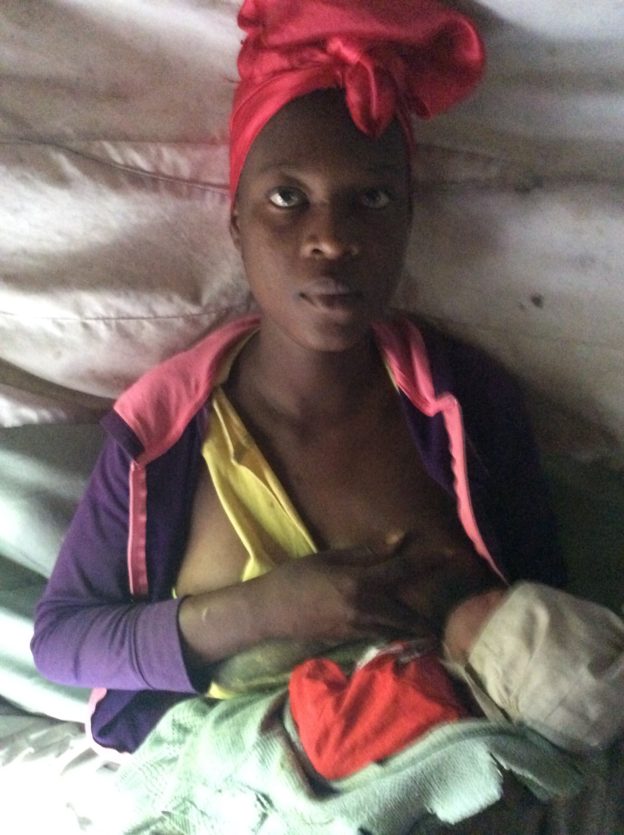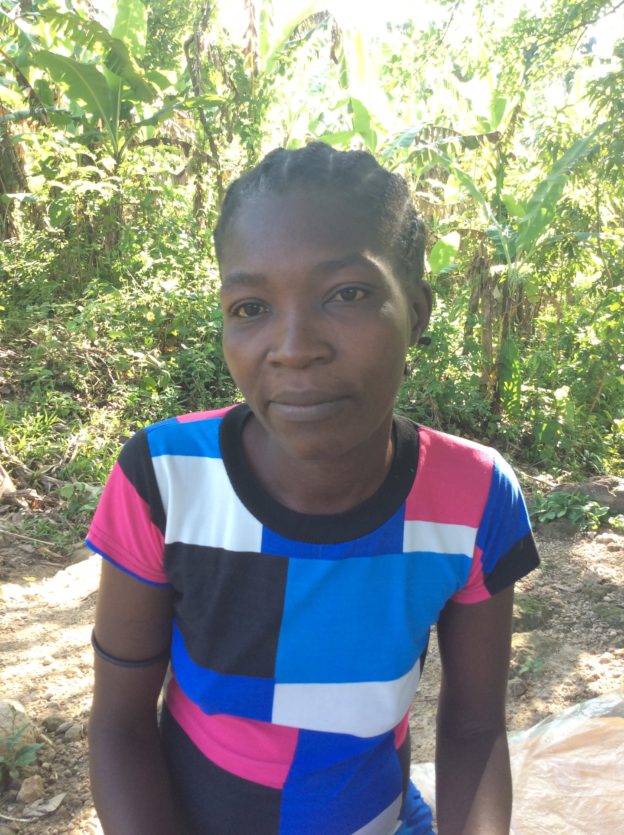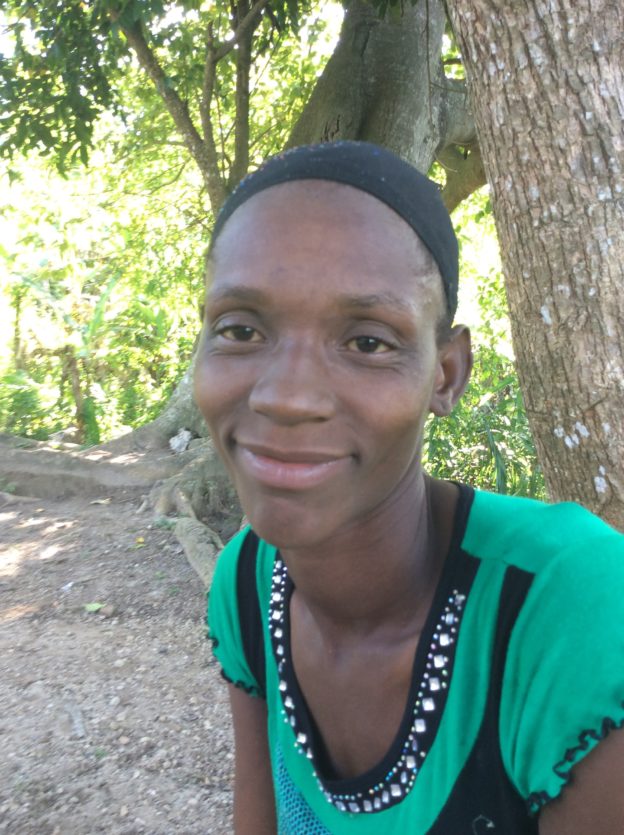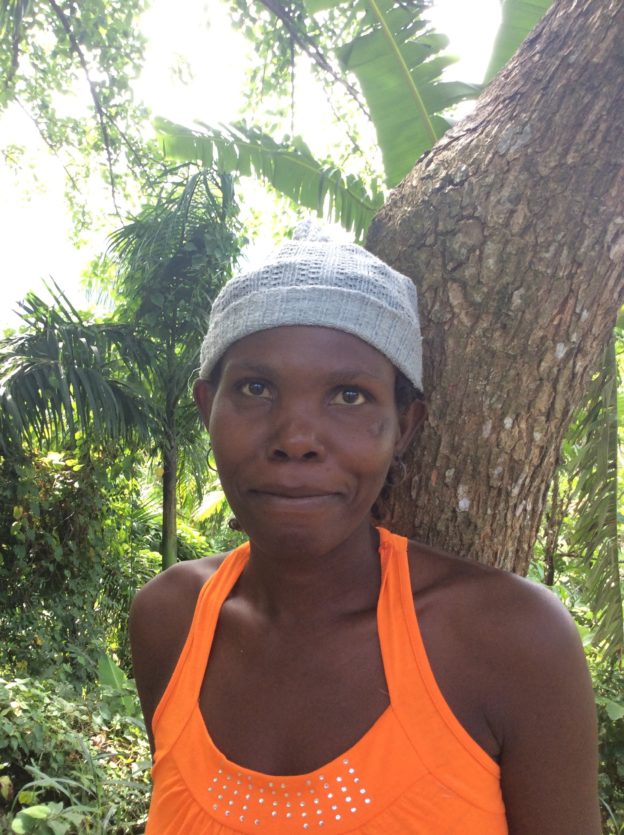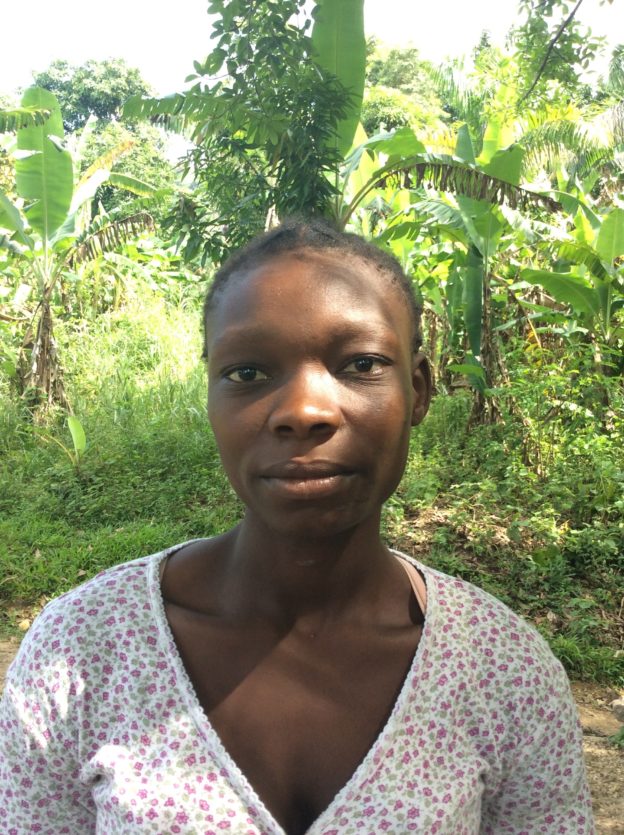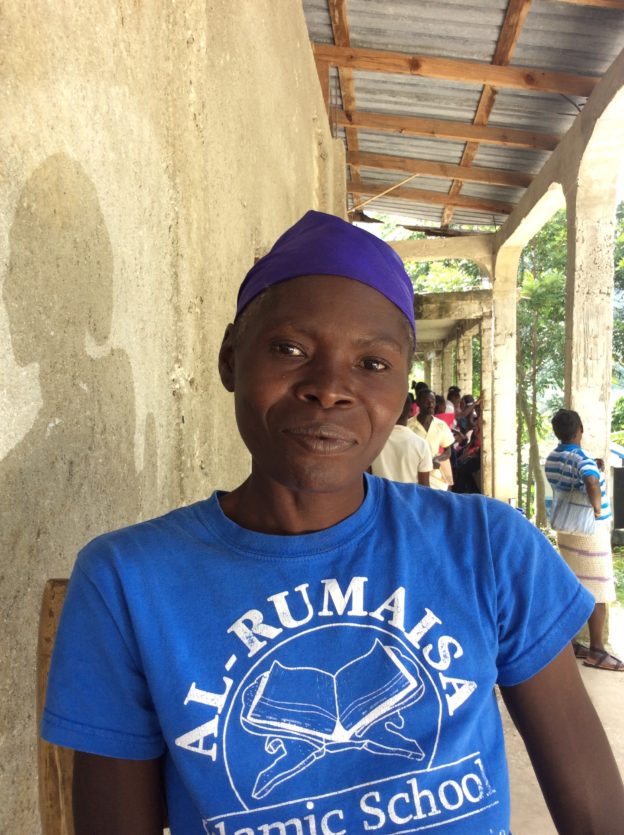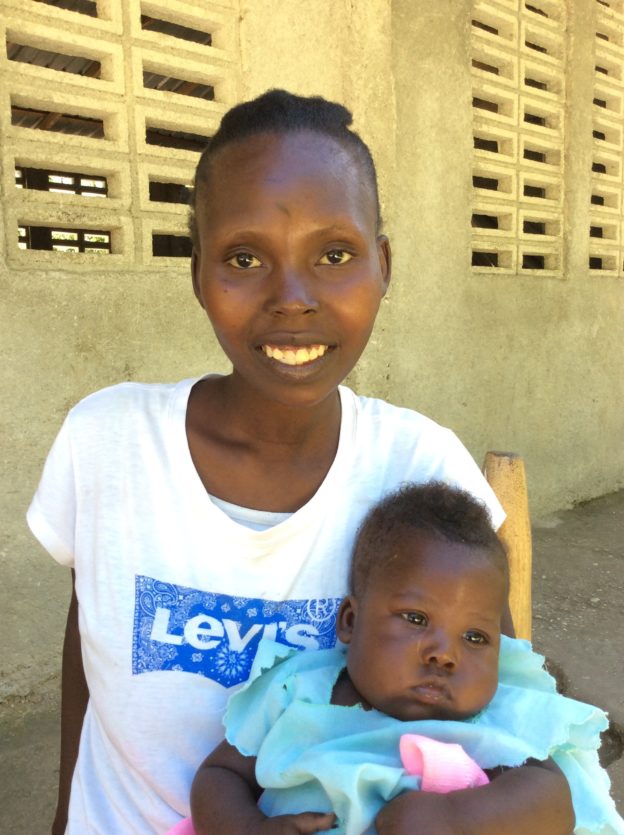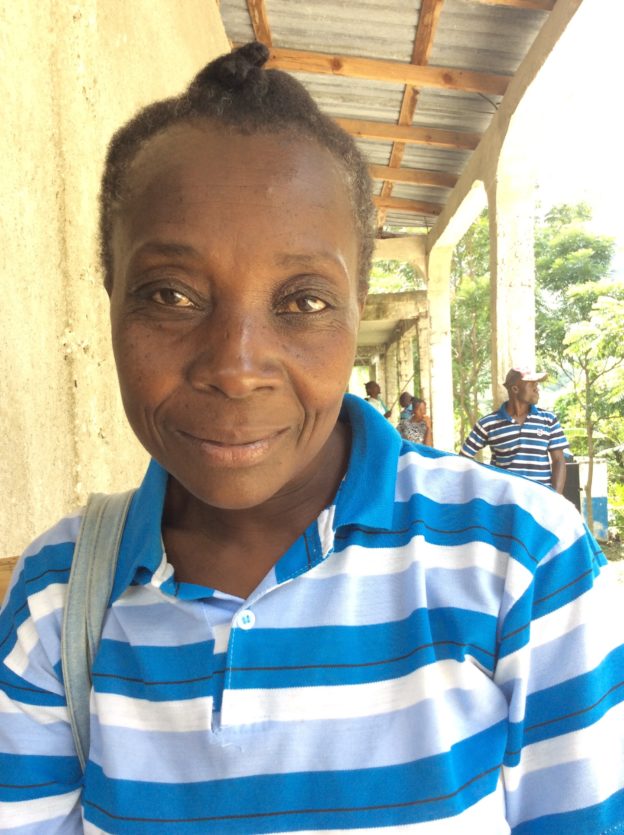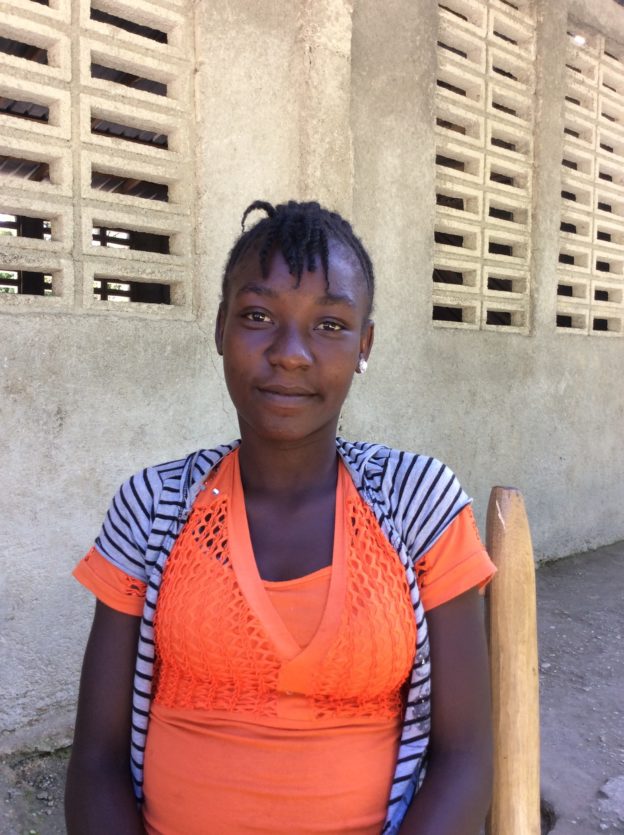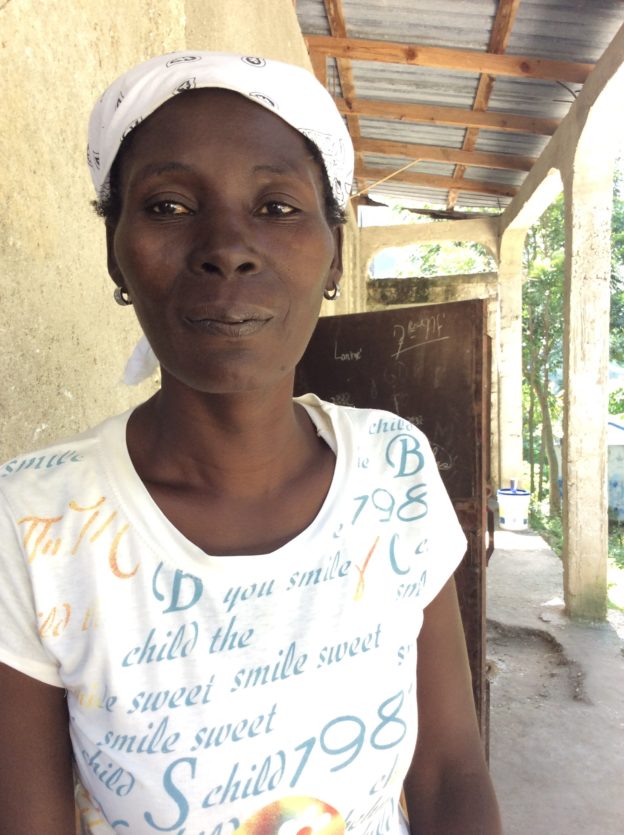For the past three weeks Monise has been hiking back and forth between her home in Kaprens and the health center in Kolonbyè. Her sister gave birth to a boy about three months ago, but she’s had a problem with her breasts. She was sick, and she was unable to provide milk for her infant. She was admitted first to the clinic and then referred to the hospital outside of Laskawobas. Monise wanted to be with her sister as much as she could. Patients at Haitian hospitals need to have someone with them because nurses don’t generally offer the personal care – help with bathing etc. – that they need.
The hike is difficult under the best of circumstances. The narrow, winding path up to Kaprens rises steeply up from the Savanèt road. And it’s rocky in places and muddy in others, so you have to be careful of your footing.
But for Monise, it was especially hard. She was eight months pregnant. Saturday afternoon, she hiked up from the road, and Saturday night she gave birth to her own child. She’s still in bed. Haitian mothers in the countryside generally stay inside with their infant for several days before leaving their hut.
Giving birth will probably set Monise back some. She was already inclined to let others take responsibility for her. She now has four children with three different men, and she nevertheless lets her aging mother do most of the work to keep her and her children fed. But she will need to start taking more responsibility for herself in the coming months. That is something for her and Martinière, her case manager, to work on.
